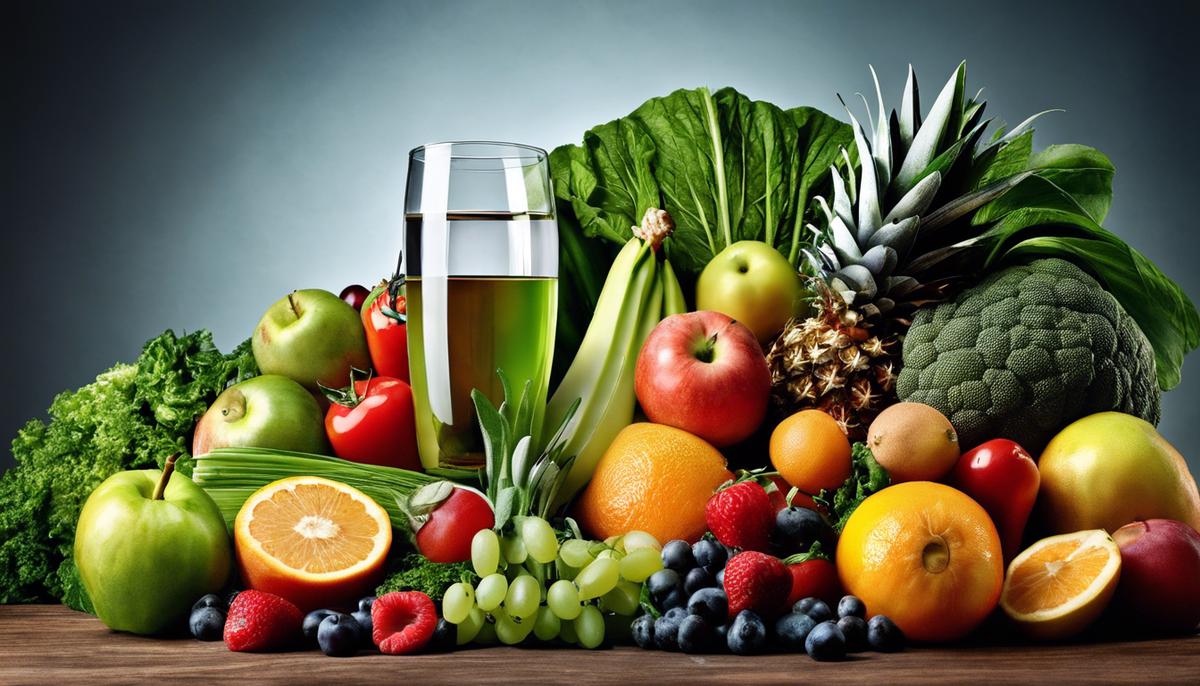In today’s health-conscious society, it’s common to hear about the importance of maintaining a healthy weight and avoiding excess pounds. However, for some individuals, gaining weight can be a challenge. Whether it’s due to a high metabolism, a medical condition, or personal preference, there are many reasons why someone may want to gain weight. The key is to do so in a healthy and sustainable way. In this article, we will explore a variety of foods that can help promote healthy weight gain, along with some tips and strategies for incorporating them into your diet.
Carbohydrates: Fueling Your Weight Gain Journey
Carbohydrates are an essential macronutrient that provides the body with energy. They are often misunderstood and unfairly demonized, but they play a crucial role in a balanced diet, especially when it comes to weight gain. Incorporating the right types of carbohydrates into your meals can help you achieve your weight gain goals. Here are some carbohydrate-rich foods to consider:
1. Whole Grains: Power-packed Nutrition
Whole grains are an excellent source of complex carbohydrates, fiber, and essential nutrients. Unlike refined grains, whole grains retain their bran and germ, making them more nutritious and filling. Some examples of whole grains include:
- Brown rice
- Quinoa
- Oats
- Barley
- Whole grain bread
These grains can be incorporated into your meals in various ways. For instance, you can enjoy a hearty bowl of oatmeal for breakfast or use quinoa as a base for a protein-packed salad.
2. Starchy Vegetables: A Nutrient-Dense Option
Starchy vegetables are a great addition to any weight gain diet. They provide a healthy dose of carbohydrates, vitamins, minerals, and fiber. Some popular starchy vegetables include:
- Potatoes
- Sweet potatoes
- Butternut squash
- Corn
These vegetables can be baked, roasted, or mashed to create delicious and satisfying meals. For a nutrient-dense option, top your baked potato with healthy fats like avocado or nut butter.
3. Legumes: A Protein-Infused Choice
Legumes, such as beans, lentils, and chickpeas, are not only rich in protein but also high in carbohydrates. They are a versatile ingredient that can be used in soups, stews, salads, and even desserts. Adding legumes to your diet can provide a significant boost in calories and nutrients.
4. Fruits: A Sweet and Healthy Indulgence
While fruits are not as calorie-dense as some other carbohydrate sources, they can still be a valuable addition to a weight gain diet. Fruits are packed with essential vitamins, minerals, and fiber. Dried fruits, such as dates and apricots, are particularly beneficial for weight gain due to their natural sugar content.
Protein: Building Blocks for Muscle Mass
Protein is often associated with muscle building and repair, but it also plays a role in weight gain. Including protein-rich foods in your diet can help you build lean muscle mass and promote healthy weight gain. Here are some protein sources to consider:
1. Lean Meats: A Protein Powerhouse
Lean meats, such as chicken, turkey, and lean cuts of beef, are excellent sources of high-quality protein. They provide essential amino acids needed for muscle growth and repair. Including lean meats in your meals can help you increase your calorie intake while providing important nutrients.
2. Fish: Healthy Fats and Protein
Fish, particularly fatty fish like salmon and tuna, is not only rich in protein but also packed with healthy fats, including omega-3 fatty acids. These fats have numerous health benefits and can support brain, eye, and heart health. Incorporating fish into your diet a few times a week can be a beneficial strategy for healthy weight gain.
3. Eggs: The Versatile Protein Source
Eggs are a versatile and affordable protein source. They are rich in essential amino acids, vitamins, and minerals. Eggs can be enjoyed in various ways, such as boiled, scrambled, or incorporated into baked goods. Including eggs in your diet can provide a nutrient-dense boost in calories.
4. Dairy Products: A Calcium-Rich Option
Dairy products, such as milk, cheese, and yogurt, are not only high in protein but also rich in calcium. Calcium is essential for bone health and can be particularly beneficial for individuals concerned about bone density or osteoporosis. Choosing full-fat dairy products can provide additional calories and nutrients.
Healthy Fats: Fueling Your Weight Gain Journey
Contrary to popular belief, fats are an essential part of a balanced diet and can contribute to healthy weight gain when consumed in moderation. Healthy fats are calorie-dense and can help increase your overall calorie intake. Here are some healthy fat sources to consider:
1. Nuts and Nut Butters: A Nutrient-Dense Snack
Nuts, such as almonds, walnuts, and cashews, are not only a great source of healthy fats but also provide protein, fiber, vitamins, and minerals. Enjoying a handful of nuts as a snack or adding nut butter to your meals can increase your calorie intake while providing essential nutrients.
2. Avocados: Creamy and Nutritious
Avocados are a unique fruit that is rich in healthy fats, fiber, vitamins, and minerals. They are also a good source of calories, making them an excellent choice for weight gain. Avocados can be added to sandwiches, salads, smoothies, or enjoyed on their own as a nutritious snack.
3. Olive Oil: A Versatile Healthy Fat
Olive oil is a staple in Mediterranean cuisine and is known for its health benefits. It is a rich source of monounsaturated fats, which can help decrease LDL (bad) cholesterol and reduce the risk of heart disease. Using olive oil as a dressing, cooking oil, or drizzling it over roasted vegetables can add flavor and calories to your meals.
4. Seeds: Tiny Powerhouses of Nutrition
Seeds, such as chia seeds, flaxseeds, and sunflower seeds, are nutritional powerhouses. They are packed with healthy fats, fiber, and various vitamins and minerals. Sprinkling seeds on yogurt, adding them to smoothies, or incorporating them into baked goods can enhance the nutritional value and calorie content of your meals.
Incorporating Weight Gain Foods into Your Diet
Now that we’ve explored various foods that promote healthy weight gain, let’s discuss some tips and strategies for incorporating them into your diet. Here are a few suggestions to help you get started:
1. Meal Planning and Preparation
Planning and preparing your meals in advance can make it easier to incorporate weight gain foods into your diet. Set aside some time each week to plan your meals, create a shopping list, and prepare nutritious meals and snacks. This can help ensure that you have a variety of weight gain foods readily available.
2. Balanced Meals and Snacks
When planning your meals, aim for a balance of carbohydrates, protein, and healthy fats. This will provide your body with the necessary nutrients and energy to support healthy weight gain. Include a variety of weight gain foods from each category to ensure a well-rounded diet.
3. Calorie Density
Focus on consuming calorie-dense foods that pack a lot of calories into a small volume. This can help you increase your calorie intake without feeling overly full. Foods like nuts, avocados, and whole grains are excellent choices for weight gain due to their high calorie density.
4. Snacking and Nutrient Timing
In addition to your main meals, incorporate nutrient-dense snacks throughout the day. Snacking can help increase your calorie and nutrient intake. Consider snacks like Greek yogurt with fruits, trail mix, or protein smoothies. Also, pay attention to nutrient timing by enjoying a pre- and post-workout snack to support muscle growth and recovery.
5. Gradual Increases
When aiming to gain weight, it’s important to do so gradually. Gradually increasing your calorie intake allows your body to adjust and minimizes the risk of gaining excess body fat. Start by adding a few extra hundred calories per day and monitor your progress to make adjustments as needed.
6. Hydration
Staying hydrated is essential for overall health, including weight gain. Make sure to drink plenty of water throughout the day to support digestion, nutrient absorption, and overall well-being. Consider hydrating with calorie-dense beverages like smoothies or milk.
7. Seek Professional Guidance
If you’re struggling with weight gain or have specific dietary concerns, consider consulting a registered dietitian or healthcare professional. They can provide personalized guidance and create a tailored meal plan to help you reach your weight gain goals in a healthy and sustainable way.
Remember, healthy weight gain is a gradual process that requires patience and consistency. Focus on nourishing your body with nutrient-dense foods, staying active, and getting adequate rest to support your overall well-being. With the right approach and mindset, you can achieve your weight gain goals while maintaining a balanced and healthy lifestyle.
Incorporating weight gain foods into your diet can be both enjoyable and satisfying. Embrace the journey towards a healthier weight and celebrate the progress you make along the way.



